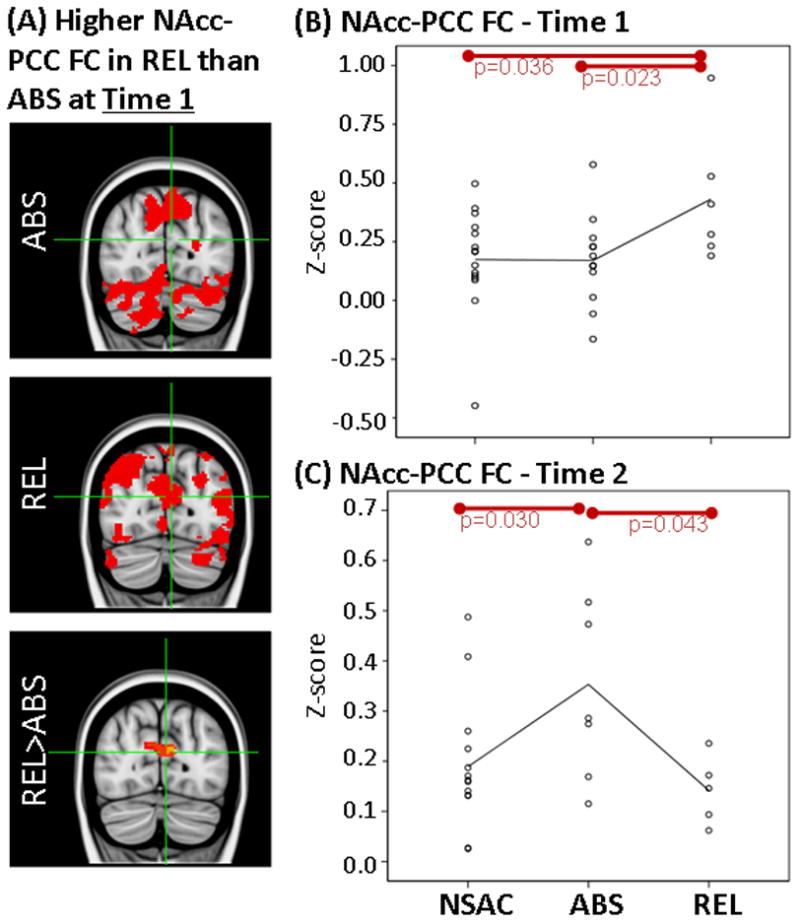Figure 3.

Results showing higher FC between NAcc and PCC at Time 1 but not at Time 2 in REL vs ABS. LEFT: (A) Whole-brain FC maps showing regions with significant connectivity to NAcc (p<0.025, corrected for multiple comparisons) in ABS (1st row) and REL (2nd row). Bottom row shows whole-brain independent samples t-test results in which REL had significantly higher NAcc-PCC than ABS (p<0.025, corrected for multiple comparisons). Functional maps are laid on MNI brains in radiological orientation (right is left). RIGHT: Scatter plots showing z-scores representing strength of NAcc-PCC FC in the NSAC, ABS and REL groups at Time 1 (B) and Time 2 (C). Each dot represents an individual subject’s average z-score within the PCC cluster. Red bars show significant difference between groups. FC, functional connectivity; NAcc, nucleus accumbens; PCC, posterior cingulate cortex; REL, stimulant addicts that relapsed over six months; ABS, stimulant addicts that remained abstinent over six months; MNI, Montreal Neurological Institute; NSAC, non-substance abusing controls.
